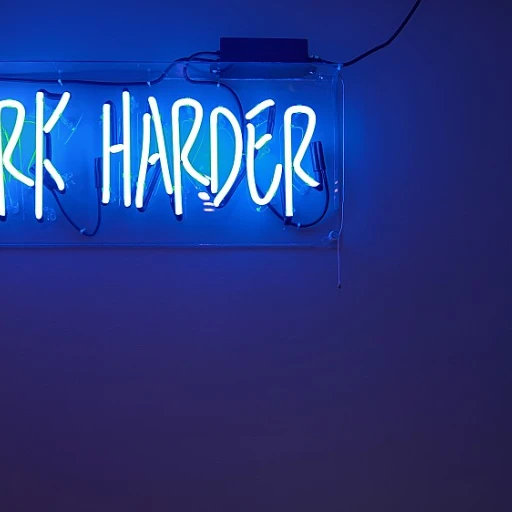
Overview of the Family Medical Leave Act
Introduction to the Family Medical Leave Act
The Family Medical Leave Act, commonly known as FMLA, plays a crucial role in providing employees with the necessary time off to address personal or family health issues. This federal law was designed to help employees balance their work and family life by allowing them to take unpaid, job-protected leave for specific family and medical reasons. When it comes to navigating the FMLA, it's important to understand its impact on both employees and employers. With FMLA, eligible employees are entitled to up to 12 workweeks of leave in a 12-month period. This can be used for situations such as the birth or adoption of a child, caring for a family member with a serious health condition, or when the employee themselves needs medical leave due to a serious health condition. In New Jersey, the FMLA aligns with state-specific laws, known as NJFLA (New Jersey Family Leave Act). This helps provide employees with a more comprehensive suite of benefits, often collaborating with programs like the New Jersey Family Leave Insurance to offer paid family leave during the allocated weeks away from work. Employers have responsibilities to adhere to these laws to ensure that eligible employees receive their rights without experiencing adverse effects on their employment status. Moreover, understanding the distinction between federal FMLA and state laws like NJFLA can be crucial for both parties involved. Nevertheless, employers often face challenges in managing and complying with these regulations, which in turn can impact the overall employee experience at the workplace. For a more engaging approach to understanding these regulations, consider exploring engaging Christmas spirit week ideas for the workplace to foster a supportive work environment and alleviate some of these challenges.Eligibility Criteria for Employees
Determining Eligibility for Family Medical Leave
When it comes to understanding the eligibility criteria for Family Medical Leave in New Jersey, it's essential for employees and employers to be well-informed about the specifics of leave entitlements and obligations under the law. The Family and Medical Leave Act (FMLA) is a federal law that ensures eligible employees can take unpaid, job-protected leave for specific family and medical reasons. New Jersey also has its own state provisions, often known as the NJ FLA.
Here are the basic eligibility requirements for employees looking to benefit from FMLA leave:
- Employment Duration: An employee must have worked for the employer for at least 12 months. However, these months do not need to be consecutive.
- Minimum Hours Worked: The employee must have completed a minimum of 1,250 work hours during the 12-month period immediately preceding the start of the leave.
- Employer Size: FMLA applies only to employers who have 50 or more employees within a 75-mile radius of the employee's worksite.
Eligible employees can secure up to 12 weeks of leave within a year for specific reasons, including serious health conditions affecting themselves or a family member, childbirth, adoption, or foster care. It's also important for employees to be aware that while the FMLA provides unpaid leave, New Jersey offers additional paid family leave benefits through its state program, allowing employees to receive wage replacements for up to six weeks.
Understanding these criteria is crucial not only for ensuring compliance but for fostering a supportive work environment where employees can balance their work and family responsibilities effectively. This awareness significantly enhances the employee experience, as individuals feel more secure in their ability to care for family members without risking their employment or health insurance.
Rights and Responsibilities of Employees
Role of Employees in Managing FMLA Leave
Understanding the Family Medical Leave Act involves recognizing the rights and responsibilities it entails. When eligible employees apply for FMLA leave, they are designated some crucial responsibilities. First and foremost, employees must provide their employer with sufficient notice when their leave is foreseeable. Typically, a 30-day advance notice is considered reasonable unless the circumstance prevents it. If the need for leave is not foreseeable, employees should inform their employer as soon as possible, adhering to the company’s usual and customary call-in procedures. This helps maintain open communication, which is key in managing family, work, and additional responsibilities effectively.Documentation and FMLA Requirements
To ensure the validity of the request, employees will likely need to supply medical certification supporting the necessity for leave. This is especially true in cases of serious health conditions that impact an employee's ability to work or necessitate their presence to care for a family member. The employee’s responsibility extends to keeping the employer informed of the leave status and anticipated return to work date. Employers might also require subsequent re-certifications to verify the continuation of medical leave. Adhering to these requirements ensures that employees can enjoy their family leave and maintain their protected leave status under the law.Maintenance of Health Benefits
While employees are on FMLA leave, law mandates that their group health insurance coverage continues under the same terms as if they were actively employed. It's the employee's responsibility to ensure they manage the continuation of health insurance benefits, including timely premium payments if required by the employer. Understanding the family medical leave requires balancing various roles and adhering to necessary guidelines. Workplace processes, such as those enhanced with workplace equity software, can ease this burden and improve the overall experience for both employees and employers. You can explore how enhancing fairness with workplace equity software can contribute to improved compliance and communication strategies within organizations. Ensuring clarity in these responsibilities helps in creating a seamless experience for employees balancing their work commitments with personal and family obligations, while also preserving employment relationships.Impact on Employee Experience
Enhancing Work-Life Balance with Family Medical Leave
Understanding the Family Medical Leave Act (FMLA) in New Jersey provides employees with valuable protections, allowing them to focus on significant life events without the worry of job security. However, utilizing FMLA can have a profound impact on the employee experience. Employees covered by FMLA in New Jersey have the right to take up to 12 weeks of job-protected leave within a 12-month period for certain family or medical reasons. These reasons can include the serious health condition of the employee or a family member, the birth or adoption of a child, or caring for a spouse or child with a serious health condition. This leave is essential for employees needing to address critical health or family matters. While FMLA leave is unpaid, employees can often use accrued paid leave or seek benefits through New Jersey's paid family leave insurance program. This can ease the financial burden during the absence. Additionally, it is crucial for employers to maintain health insurance coverage during this period, ensuring no disruption in benefits. For employees, having the flexibility to take care of family or health issues without the fear of losing their job significantly enhances their work-life balance. It allows them to return to their employment with a sense of security and loyalty to their employer, knowing that their job and benefits are protected during their time away. By supporting employees in balancing work and personal life, organizations can foster a positive work culture and improve overall employee satisfaction. This supportive environment can lead to greater employee retention and a more committed workforce, ultimately benefiting both employees and employers.Challenges Faced by Employers
Challenges Faced by Employers When Implementing FMLA in New Jersey
The Family Medical Leave Act (FMLA) brings significant benefits to employees, offering job-protected leave for personal or family health needs. However, employers in New Jersey face several challenges when adopting these provisions into their workplace practices. Managing compliance with both federal FMLA and state-specific regulations, such as the New Jersey Family Leave Act (NJFLA), can be daunting. Each set of laws carries its own set of requirements, and employers must ensure they are adhering to both simultaneously. While the federal FMLA allows eligible employees up to 12 weeks of unpaid, job-protected leave, the NJFLA expands this to cover additional family care situations, requiring a thorough understanding of overlapping laws. Moreover, the administrative burden of tracking leave entitlements can be formidable. Employers must precisely calculate each employee's available leave period, taking into account any previous leaves within a 12-month period. This task is further complicated by the need to differentiate between leave for serious health conditions and other reasons. Another concern is communication. Clear and consistent communication with employees about their rights and responsibilities under FMLA and NJFLA is essential, yet often challenging, especially when ensuring adherence to the requirements surrounding notice and certification for medical leave. Providing paid leave insurance adds another layer of complexity. Employers must coordinate with the New Jersey paid family leave insurance program, which necessitates managing payroll deductions and understanding benefits coordination. Furthermore, maintaining an equitable work environment when employees are on leave is crucial. Employers need strategic workforce adjustments to cover tasks of those on leave without overburdening other employees. Lastly, despite these challenges, implementing FMLA regulations effectively contributes positively to the employee experience, instilling a sense of security and care. Offering such benefits shows that an employer values their staff's well-being, even amidst the complexities of legal compliance.Balancing Work and Family Life
Optimizing Work-Life Balance for Employees
Balancing work and family life while dealing with serious health conditions or caring for a family member under the Family Medical Leave Act (FMLA) and New Jersey Family Leave Act (NJFLA) can be a significant concern for many employees. These laws provide crucial support by ensuring job-protected leave, but there's more to consider for a truly positive employee experience. Employees often face challenges when trying to manage their employment duties alongside the needs of their families. Here's how employers can help bridge this gap:- Flexible Work Arrangements: Offering flexible work schedules can enable employees to attend to family and health obligations without sacrificing their work responsibilities.
- Paid Leave Options: Providing paid family leave or supplementing unpaid leave with company benefits can alleviate financial stress for employees on medical leave. Jersey's paid family leave provisions can be beneficial here.
- Healthcare Benefits: Comprehensive health insurance aids employees in dealing with medical issues, thus reducing anxiety about affording care for themselves or a family member.
- Communication: Open dialogue between employers and employees helps in understanding specific needs and tailoring support accordingly. This includes respecting privacy and maintaining confidentiality about health conditions.













